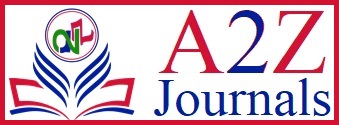Plagiarism Policy
Plagiarism is the unethical act of copying someone else’s prior ideas, processes, results, or words without explicit acknowledgment of the original author and source.
Self-plagiarism occurs when an author utilizes a large part of his/her own previously published work without using appropriate references.
Plagiarism is considered academic dishonesty and a breach of journalistic ethics. It is subject to sanctions like penalties, suspension, and even expulsion.
The journal is strictly against any unethical act of copying or plagiarism in any form. Plagiarism is said to have occurred when large portions of a manuscript have been copied from existing previously published resources.
Manuscripts found to be plagiarized during the stages of review are out-rightly rejected and not considered for publication in the journal.
Reuse of words must be kept to a minimum, credited, or quoted in the text, and all sources must be cited when they are used. The journal uses the Similarity Check service provided by Turnitin to provide editors with a user-friendly tool to help detect plagiarism. It does this by comparing manuscripts with both a web repository and the CrossRef database. A text similarity below 20% is acceptable by the journal.



















